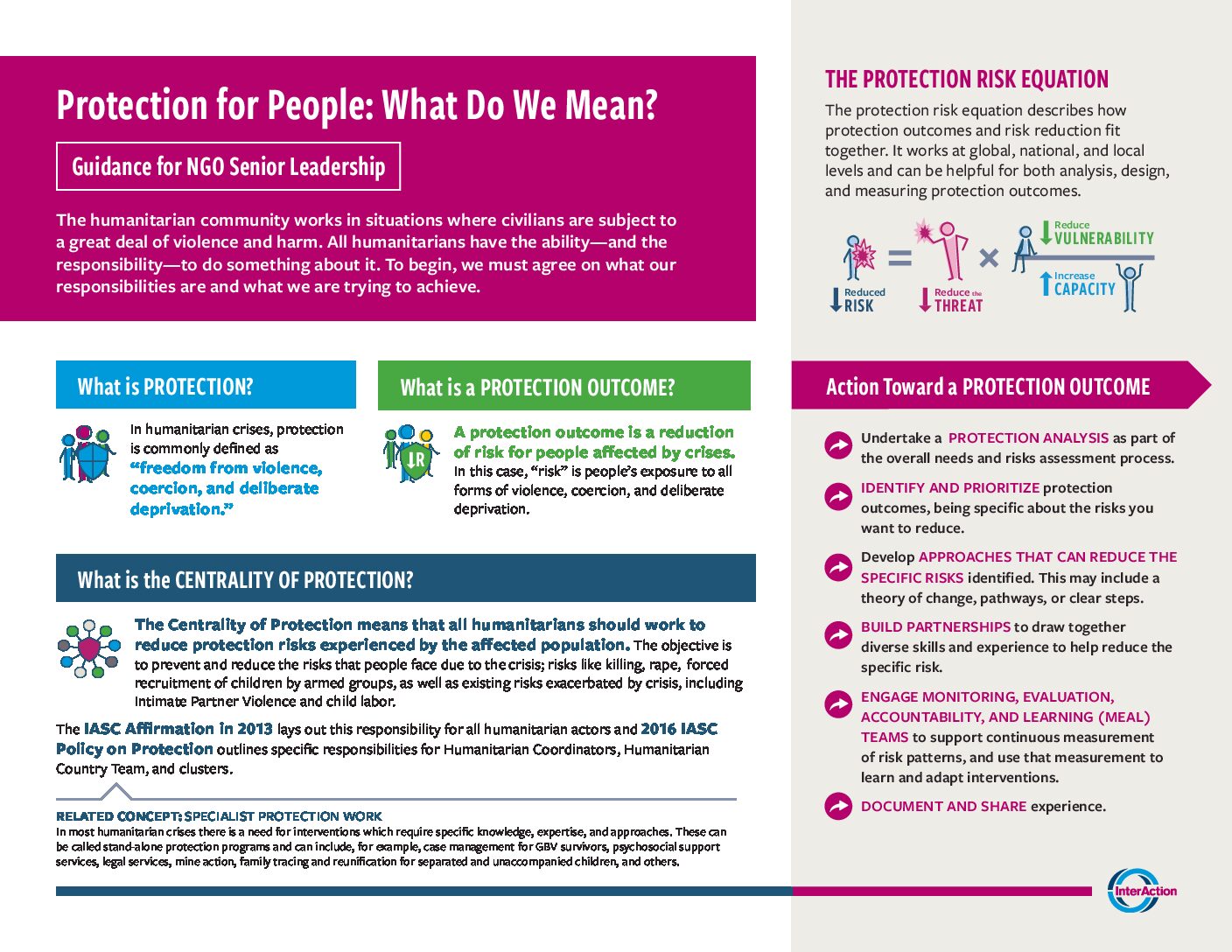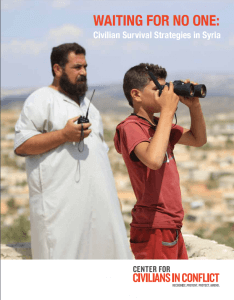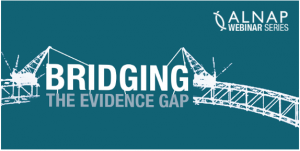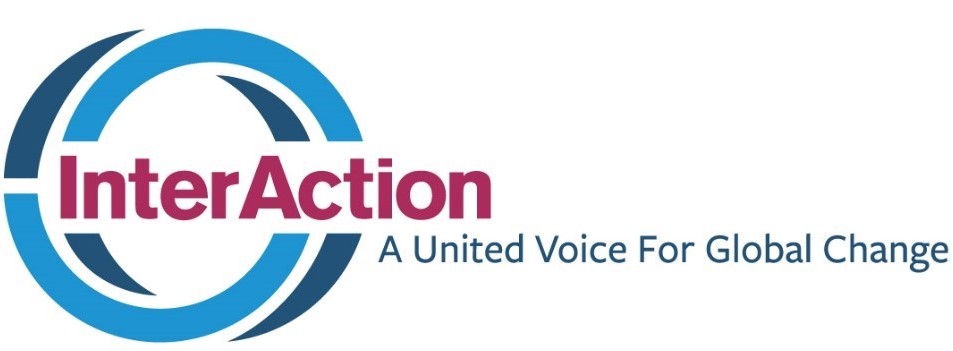Featured Resource
 Protection for People: What Do We Mean? Guidance for Senior Leadership
Protection for People: What Do We Mean? Guidance for Senior Leadership

InterAction has published and collected resources including tools, reports, project evaluations, blogposts, and others from Members and partners that promote results-based approaches to protection since 2012; all of which can be found in this resource library. To explore practical case examples of RBP in practice, visit the case example page. Background photo By: Simon Moricz Sabjan is licensed under the CC BY-NC 4.0 license.
In times of intense conflict and pervasive violence, how do civilians cope? The Center for Civilians in Conflict (CIVIC), hosted a webinar to discuss its most recent report, “Waiting for No One: Civilian Survival Strategies in Syria,” which details coping strategies used by Syrian civilians during the brutal civil war to ensure their own safety and assist others.

On 28 April 2016, the ICRC hosted a panel discussion at the Humanitarium with some of the leading experts involved in the update of the ICRC study “The Roots of Behaviour in War.” As part of the ICRC’s Conference Cycle on “Generating respect for the law,” the panel accompanied the first meeting of these experts in Geneva, highlighting their specific contributions, hypotheses, and approaches.
Evidence is essential for effective, ethical, and accountable humanitarian action. But how should it be used in planning humanitarian programming? ALNAP was joined by practitioners from four organizations to explore groundbreaking work, challenges they’ve faced, and the practical relevance of tools for humanitarian policy and programming staff.

In April 2016, InterAction visited Colombia to identify and document the key elements of results-based protection in practice. The visit led to key recommendations for actors in Colombia to strengthen the prevention and response to the use and recruitment of children by armed groups.

On July 21st the M&E Thursday Talk series was hosted by Tom Gillhespy & Laura Thisted of Peace Direct who led a discussion on Putting the Local First: Learning to adapt when measuring change. This report aims to show how the M&E reporting of local partners to donor organizations helps or hinders how programming can deal with changing contexts.

For the last six years, ALNAP has been developing the first Evaluating Humanitarian Action Guide to help humanitarian actors increase the quality and usefulness of evaluating findings and results. This event launched the Guide and looks at some of the key issues in evaluating humanitarian action today, such as how we can better involve people affected by crises, the value of independent evaluations, and how to encourage uptake.
This event followed a screening of the documentary, “On Shifting Ground”, which provides a first-hand appraisal of the way six humanitarian organizations responded to the earthquake in Nepal. The Hilton Prize Coalition Storytelling Program provided an opportunity for humanitarians to reflect on the response, identify lessons learned around community collaboration for preparedness and resiliency.

This webinar explores the background and content of the recently adopted IASC Policy on Protection in Humanitarian Action.
"*" indicates required fields